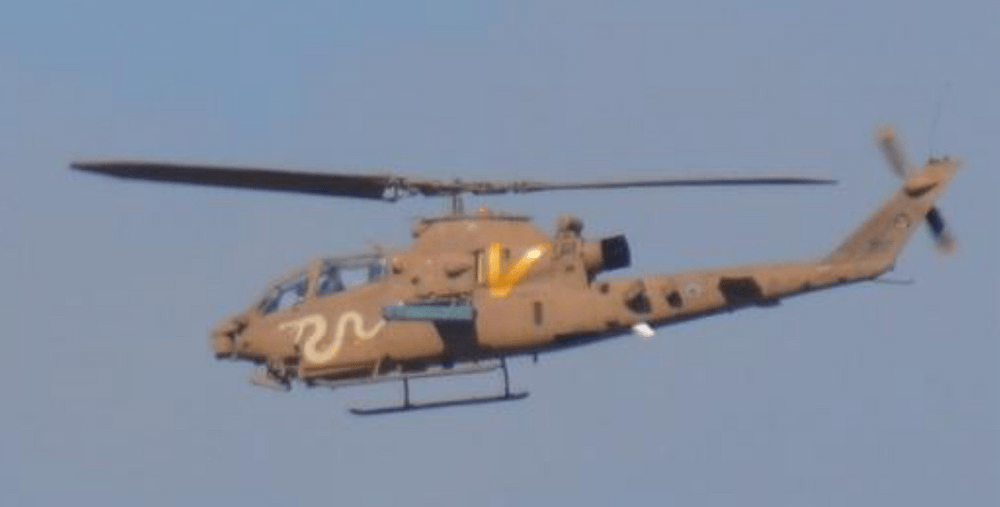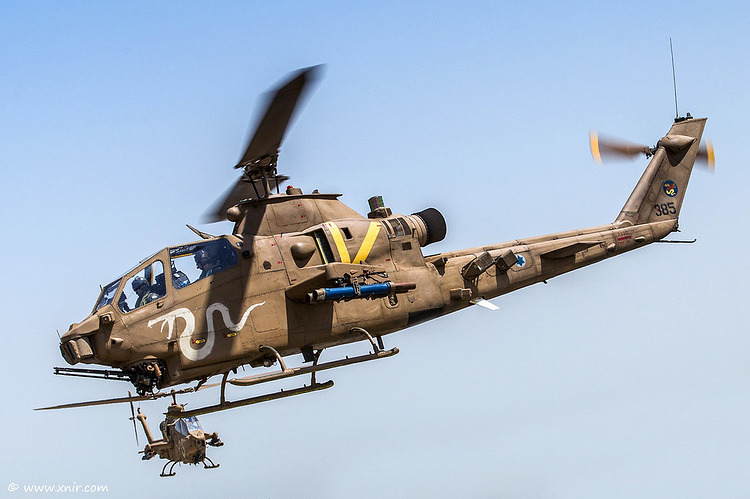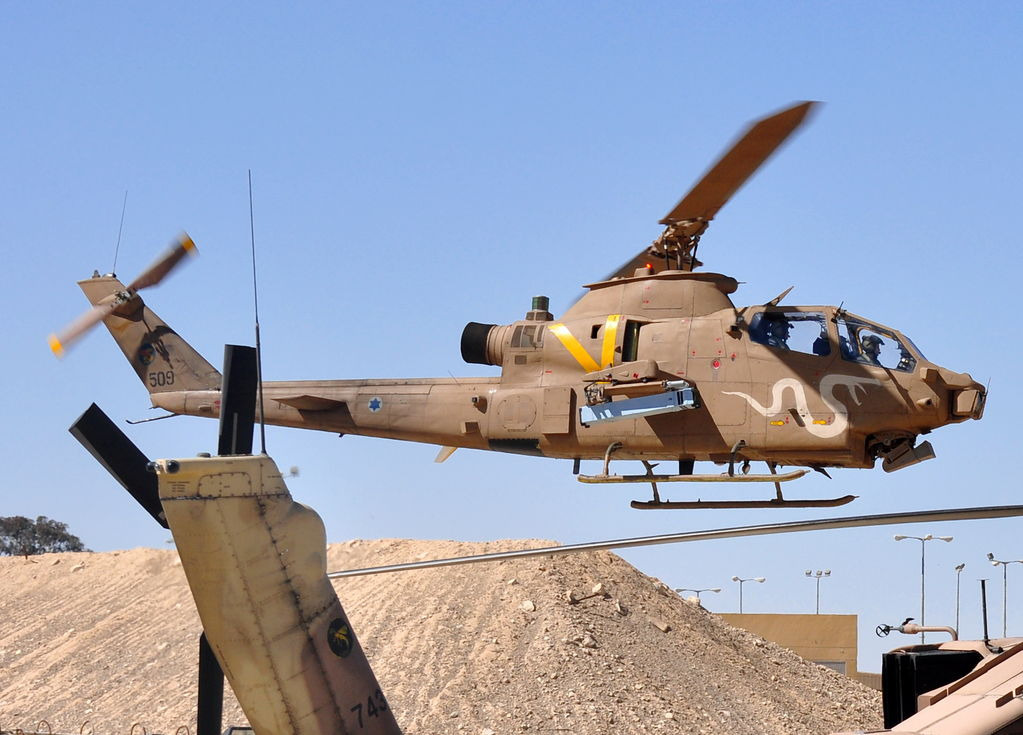- Yes, but as a modification
- Yes, as a vehicle but foldered
- Yes, as a vehicle but individually
- No (Explain why)
Suggestion No.82
G’day lads. I want to suggest an upgrade of the currently ingame Tzefa D/E, which can not only give it an improved indigenous Guitar-350 MAW, but also an indigenous Jam-Air DIRCM! This upgrade comes from the AERO GEM Protection Suite, which is what I’ll be suggesting :)
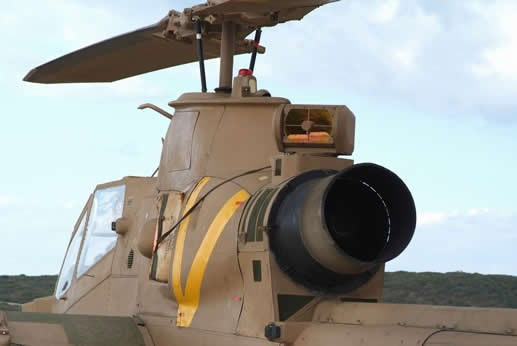
Description:
Spoiler
The Tzefa D/E, which is a Israeli AH-1 in Israeli service, is an upgraded variant of the Cobra attack helicopter made specifically for Israel’s landscape. This variant is equipped with RAFAEL’s advanced AERO-GEM protection suite, which integrates the Jam-Air Directional Infrared Countermeasure (DIRCM) system and the Guitar-350 Missile Warning System (MAW). This suite provides comprehensive, autonomous protection against modern infrared-guided threats. The Guitar-350 is a passive electro-optical system that detects and tracks missile launches based on the heat emissions from their motors. It features high-resolution sensors with a wide field of view, allowing full azimuth and elevation coverage, and is capable of identifying the trajectory and estimated impact time of incoming missiles with high accuracy. The system’s algorithm enables it to distinguish between actual threats and background interference, thereby minimizing false alarms.
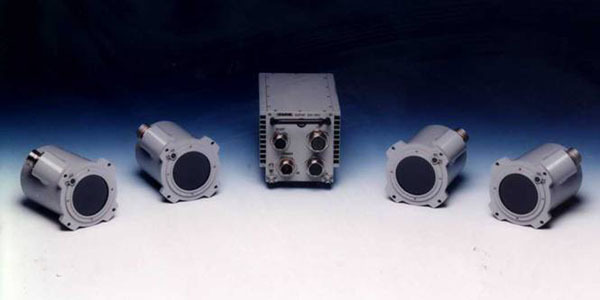
Upon threat detection, Guitar-350 activates the Jam-Air system, which uses a dual-axis gimballed turret and a high-power arc lamp to disrupt the infrared seeker of incoming missiles. The jamming process involves swift detection, threat handoff, and selection of optimal jamming techniques based on real-time conditions. Jam-Air operates independently or in coordination with flare dispensing systems and supports over a thousand jamming cycles without maintenance. It features a modular design for flexible integration and can be installed anywhere on the aircraft for optimal performance (although, as far as I know, only has been installed on Tzefa’s). With its rapid response and optional real-time countermeasure assessment, the AERO-GEM suite significantly enhances survivability against anti-tank, air-to-air, and surface-to-air infrared threats (in this case, mostly MANPADS). Due to the Jam-Air being, well, better, it has replaced the ALQ-144 IRCM.
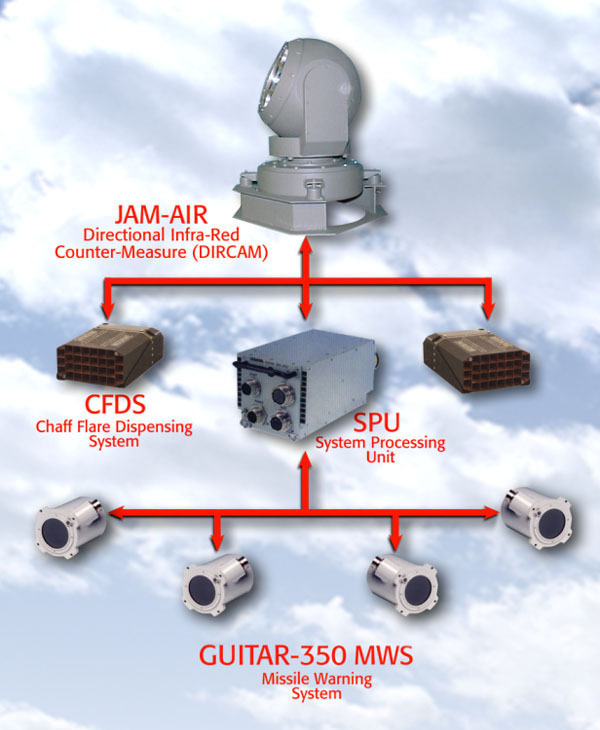
^ The Jam-Air shown above is an early variant. The latest one looks like this:
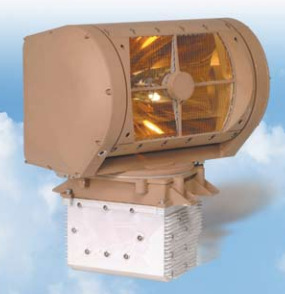
History:
Spoiler
The Tzefa D/E appeared in the mid-1990s or so, when the Israeli Air Force (IAF) acquired surplus AH-1F helicopters from the United States to increase its rotary wing attack capabilities. In August 1996, fourteen AH-1F units were delivered, replacing aging MD500 Defenders. These aircraft underwent modifications to meet Israeli operational requirements, becoming part of the IAF’s core attack helicopter fleet. The Tzefa D/E was deployed primarily in the Gaza Strip, Judea and Samaria, and along the Lebanese border.
As operational threats evolved, particularly the proliferation of man-portable air defense systems (MANPADS), Israel needed to upgrade the Tzefa with advanced self-protection technologies. RAFAEL was selected to develop and integrate a modern countermeasure suite. This led to the creation of the AERO-GEM system, combining the Jam-Air DIRCM and Guitar-350 Missile Warning System.
During development, around 2004 or earlier, the Jam-Air system was subjected to a lot of testing, including static evaluations and flight simulations to assess motion tracking and integration fidelity. It then underwent airborne trials to validate operational performance under real flight conditions. These tests utilized instrumented missile seekers and stimulus simulators to measure detection accuracy and jamming effectiveness.
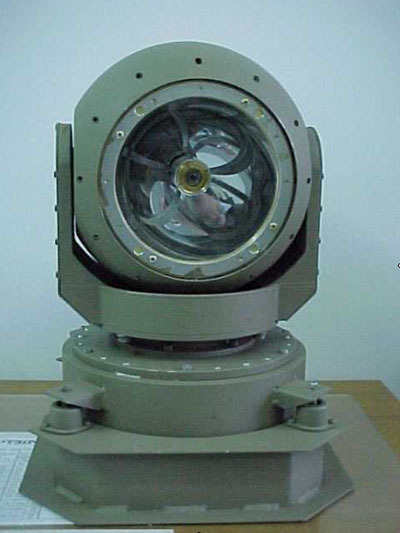
^ Early Jam-Air DIRCM
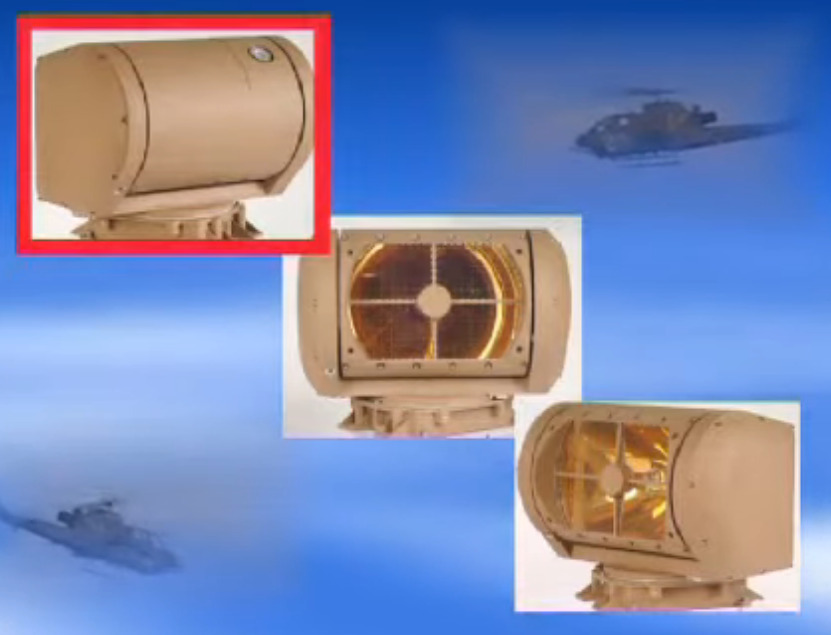
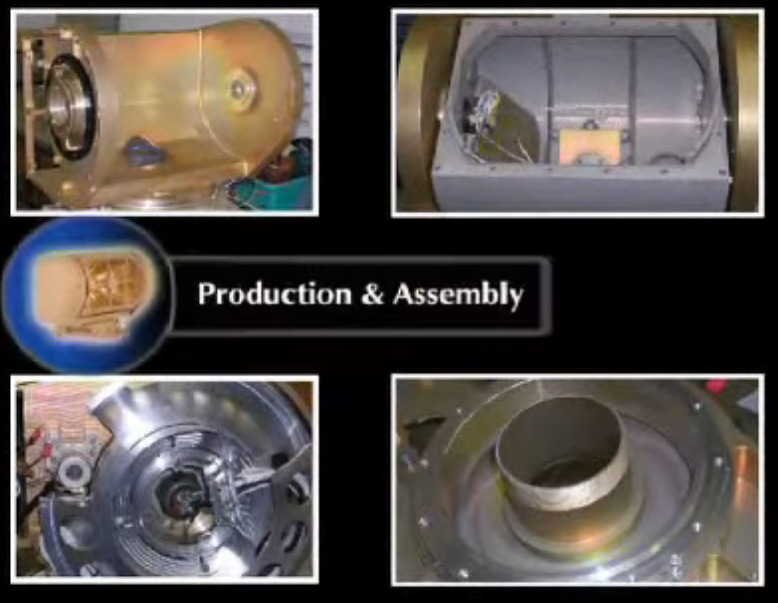
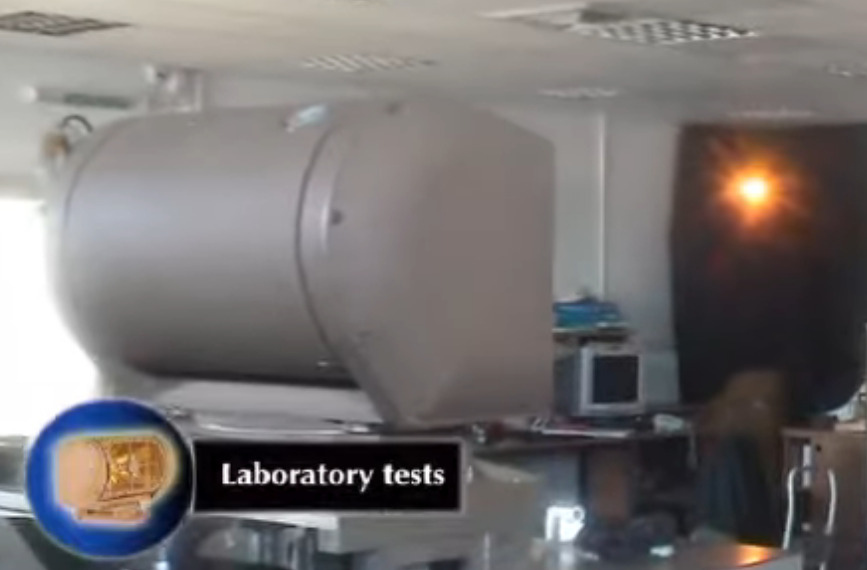
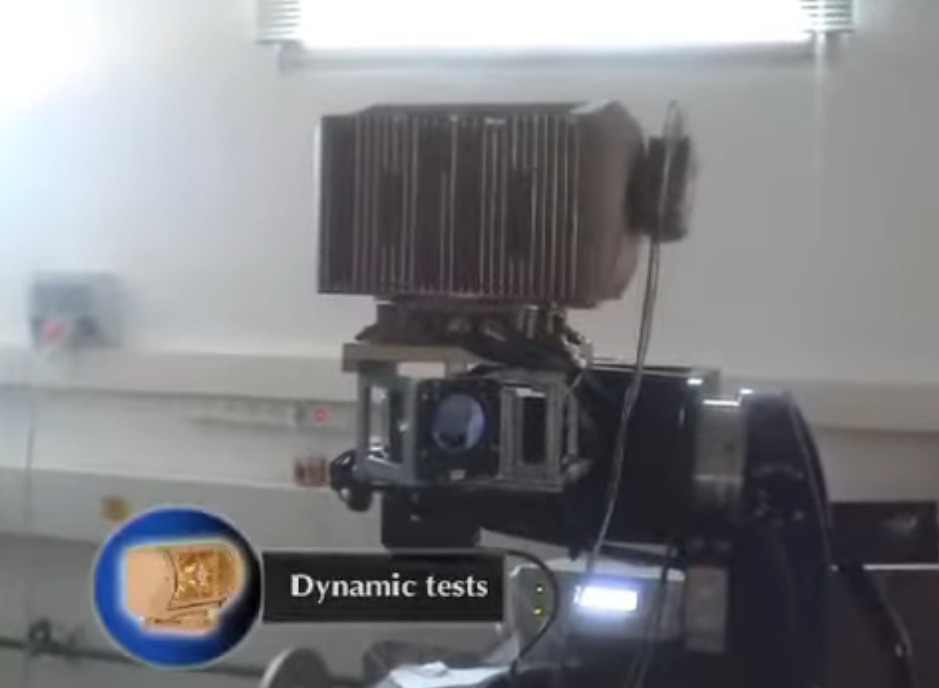
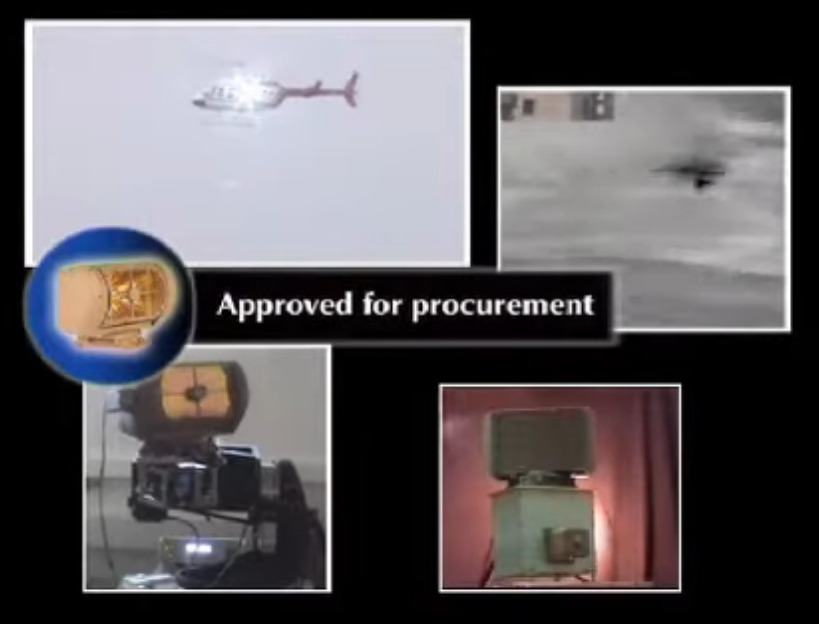
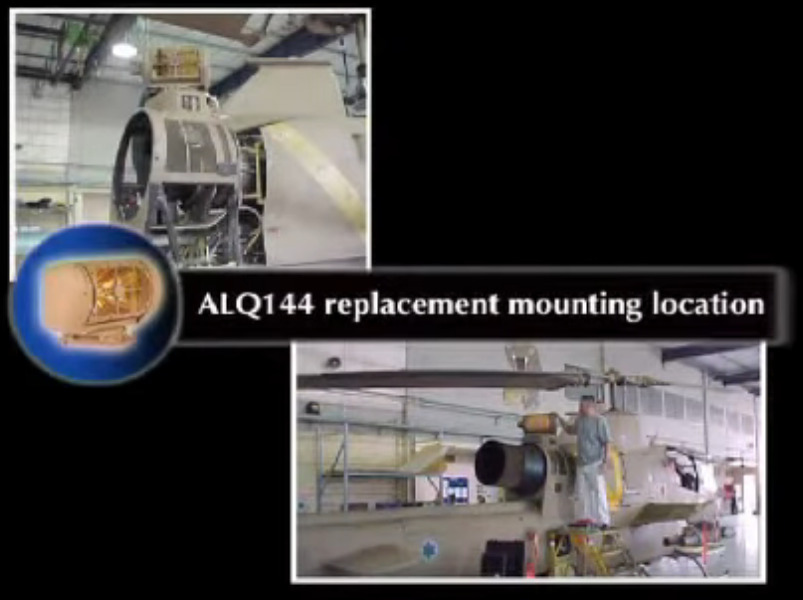
^ Later Jam-Air DIRCM
Following successful lab and flight evaluations, the system was integrated into the Tzefa D/E platform. The process involved mechanical installation, avionics integration, and compatibility checks with existing missile warning systems. The IAF conducted full-scale operational evaluations that included safety-of-flight testing, flight envelope validation, and man-machine interface assessments. The protection suite’s effectiveness was verified through live-fire trials involving various helicopter maneuvers and simulated threat engagements.
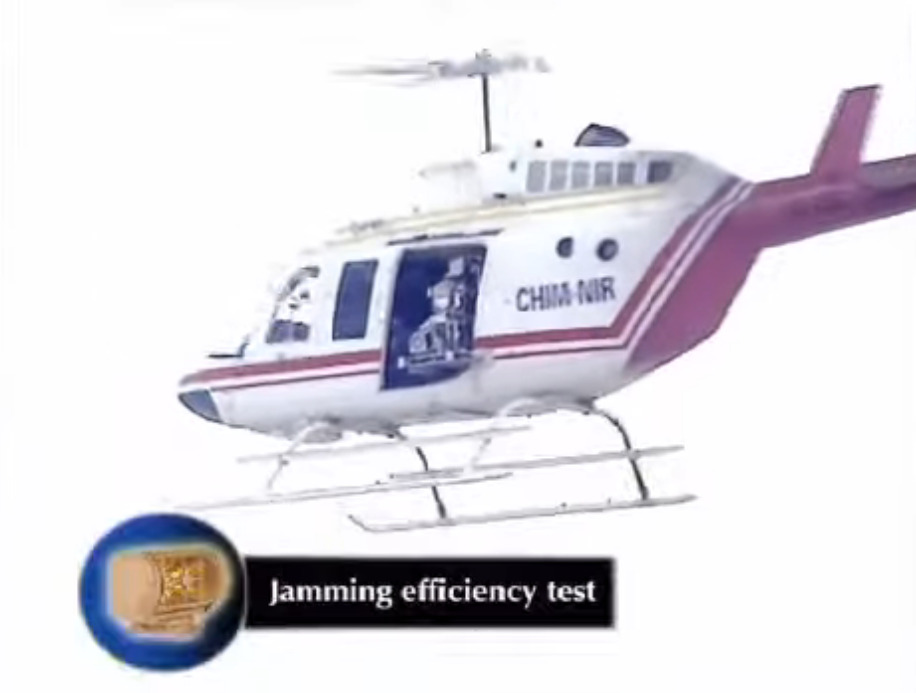
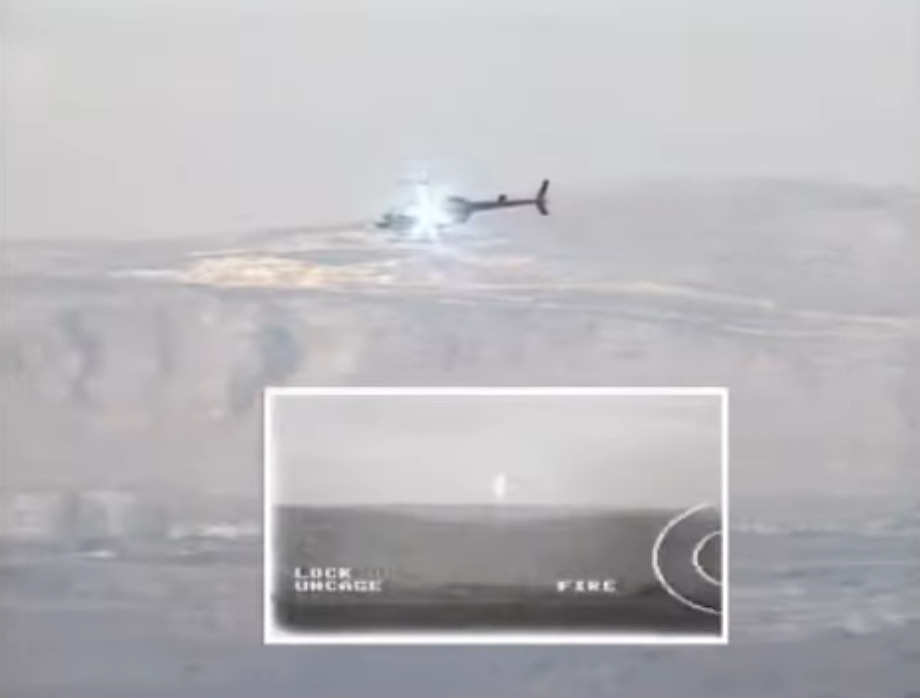
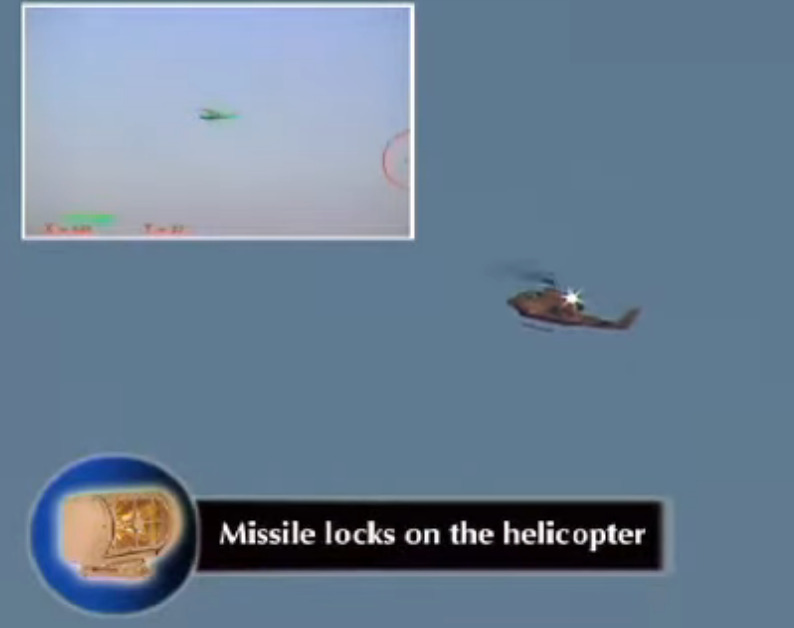
It appears however that the Jam-Air did go into serial production, however was barely heard of, despite being tested and mounted on the Tzefa. As for what happened to it, I have no idea, as in the early 2010’s it was quietly removed from Rafael’s website.
Armaments:
Spoiler
M197 20mm rotary cannon
Spike NLOS (20mm main cannon gets replaced with a Machtzelet system for the NLOS)
Spike ER (Tested. Keeps it’s main gun)
TOW-2 ATGM
I-TOW ATGM
Hydra rocket pods
Jam-Air DIRCM
Guitar-350 MAW
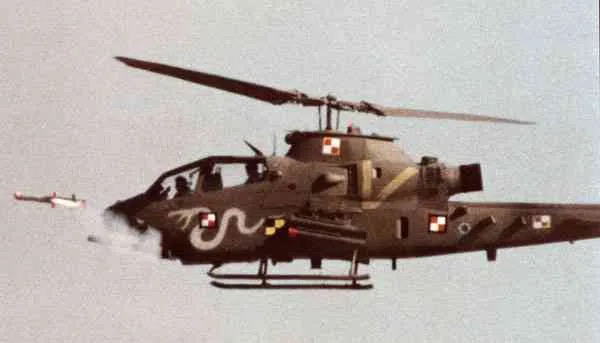
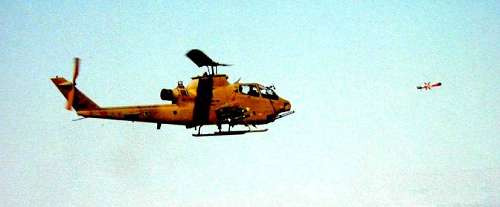
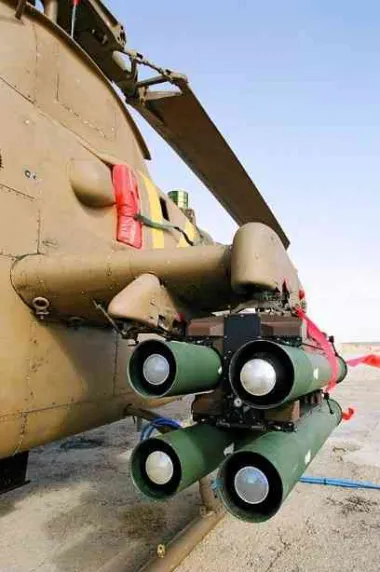
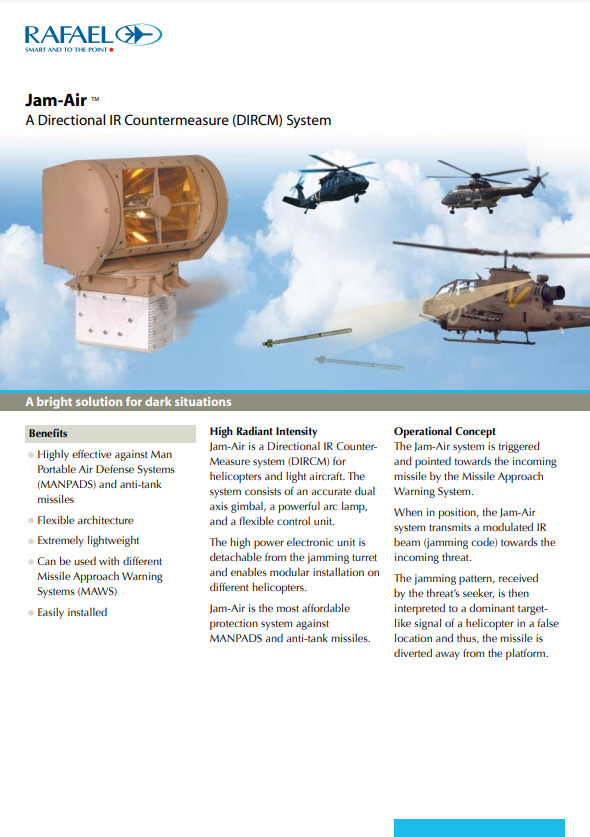
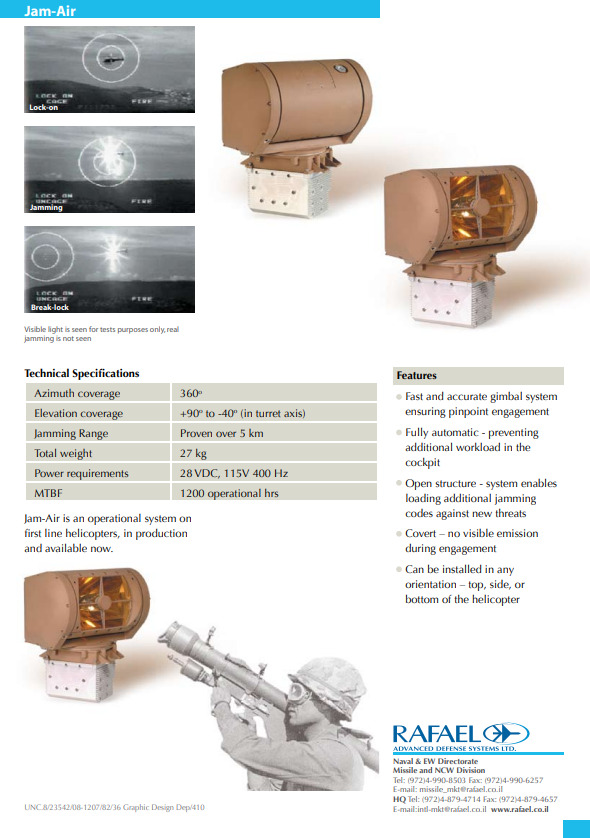
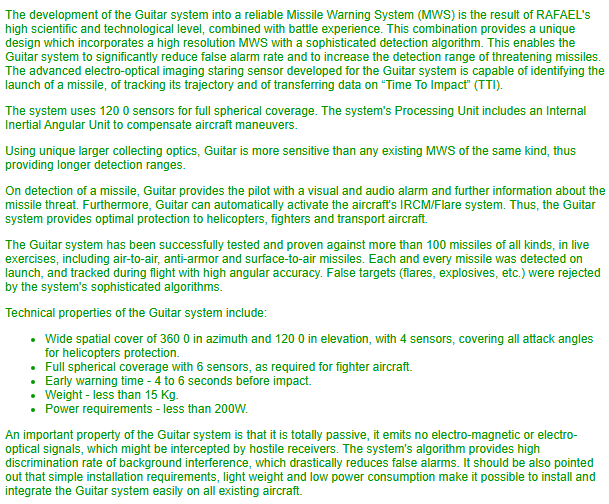

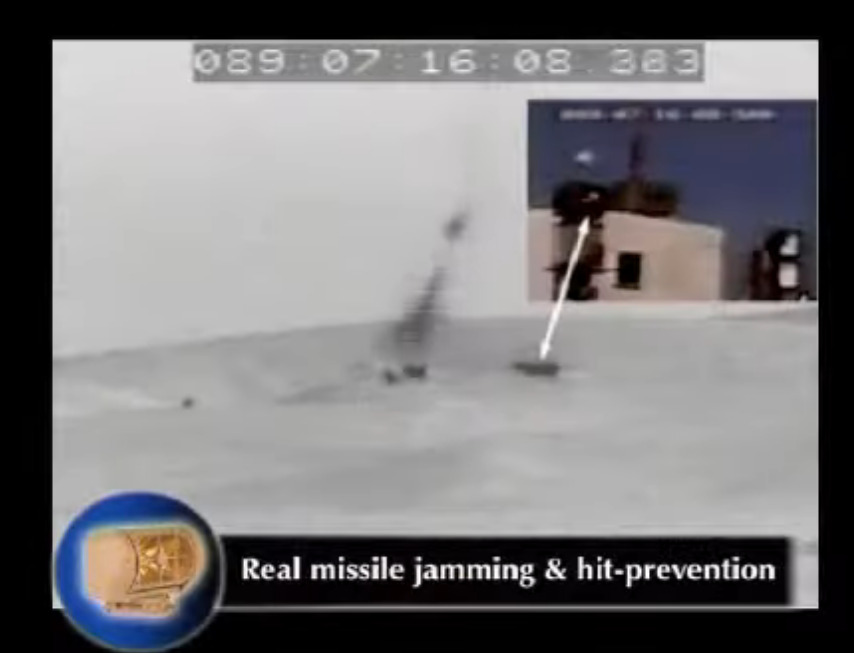
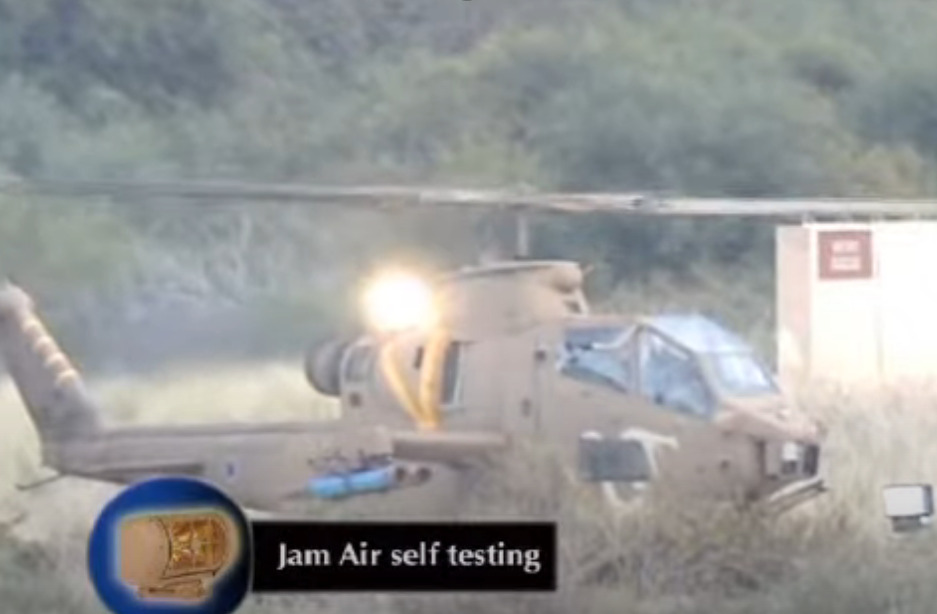
Specifications:
Spoiler
The Tzefa measures approximately 16.14m in length and 4.1m in height, with a main rotor diameter of 13.41m and a tail rotor diameter of 2.59m. Its empty weight is around 3166kg, while its maximum takeoff weight reaches 4535kg. It is powered by a single Lycoming T53-L-703 turboshaft engine delivering 1800hp, allowing a top speed of about 277km/h at 1,000 meters altitude, a climb rate of 8.2m/s and a service ceiling of approximately 3475m.
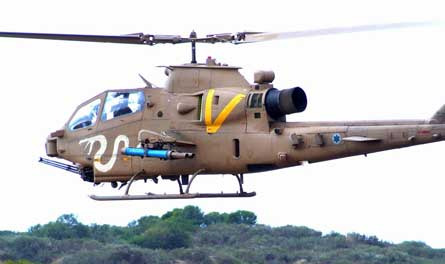
Sources:
Spoiler
Jam-Air Brochure
https://www.israeli-weapons.com/weapons/aircraft/systems/aero_gem/Aero_Gem.htm
PICTURE: Israel picks Rafael to boost helicopter survivability | News | Flight Global
https://www.sibat.mod.gov.il/idf/Air/Documents/cobra%20bell.pdf
https://www.deagel.com/photo/m02011030200004
Cobra Time! | IAF Bell AH-1 Cobra "Tzefa" (צפע, Viper) Israe… | Flickr
Thanks a lot for reading! If you have any extra information, then feel free to share them in the replies! As always, have a good day :)
